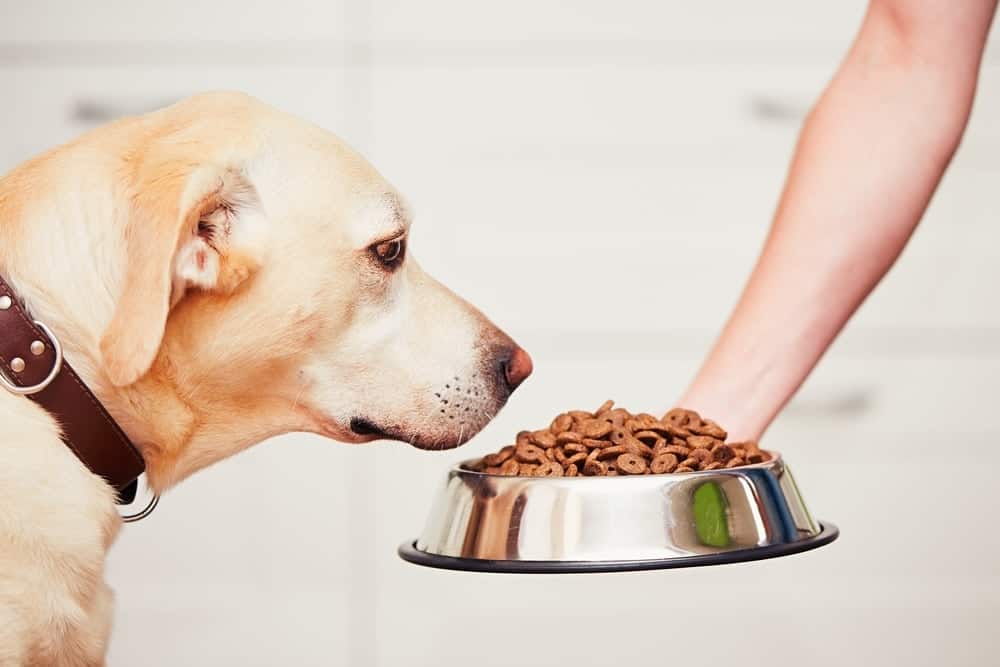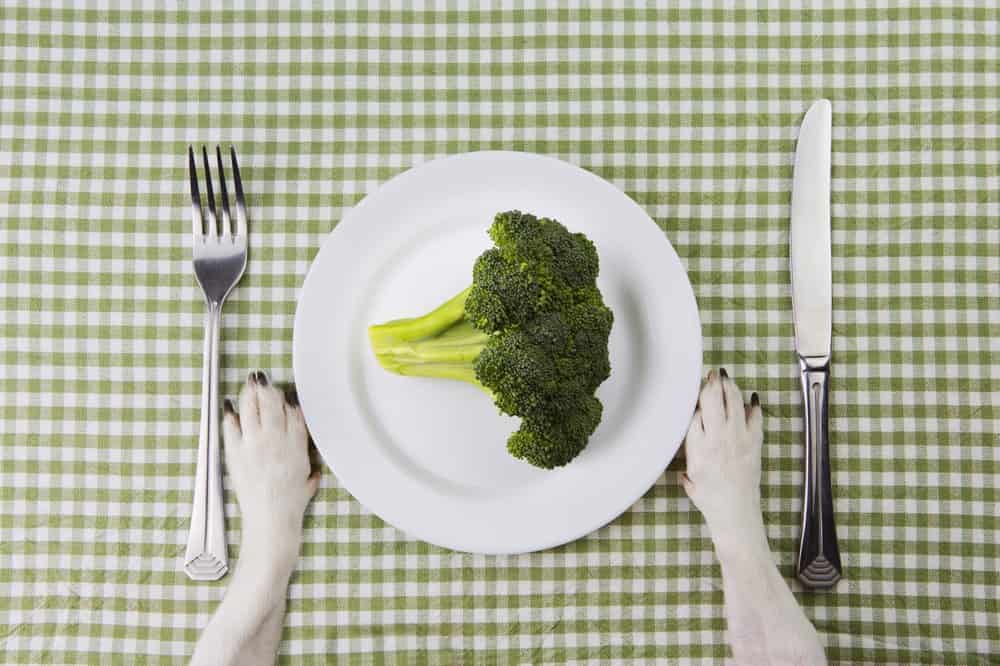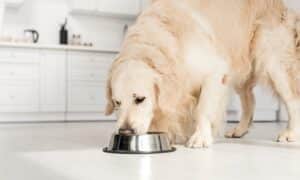“This post contains affiliate links, and I will be compensated if you make a purchase after clicking on my links.”
There can be specific issues that force dog owners to choose a low protein diet for their pooch. Kidney disease, which is unfortunately on the rise in our four-legged friends, weight gain, and liver disease can all lead to a veterinarian prescribing a low protein diet.
However, it can be challenging to change a dog’s diet, especially if they’re in the golden years. With that in mind, here are our top dietary tips and advice for dogs making the switch.

What Health Issues Require a Low Protein Dog Diet?
Several medical conditions can indicate that your dog could benefit from a low protein dog diet, such as liver disease, kidney disease, weight gain, and bladder stones. In the case of liver and kidney disease, vets typically recommend a low protein diet because it reduces the workload on these vital organs. Both these organs metabolize proteins, so by switching to a low protein diet, the liver and kidney won’t have to work as much and put the body through as much strain
Kidney and liver issues are common in dogs, but there are some more uncommon health issues that could be helped by a low protein diet, such as bladder stones. Studies have shown that switching to a low protein dog diet can dissolve the stone, with VCA Hospitals stating:
“Dogs that have experienced struvite bladder stones will often be fed a therapeutic diet for life. Diets lower in protein, phosphorus, and magnesium, and promote acidic urine are recommended. The preventive diet is NOT the same as the diet that promotes dissolution of the stones.”
Many studies have shown that low protein diets can have positive impacts on dogs with kidney issues. One reason is that these diets restrict the amount of phosphorus a dog digests. In contrast, some vets think that limiting phosphorus can be a better approach than restricting proteins. It’s vital that you do your research and speak to a veterinarian before making any drastic changes to your dog’s diet.
Is a Low-Protein Diet Good for Dogs?
Never put your dog on a low-protein diet without the permission of a vet. Use a low-protein diet as recommended by the vet, and don’t design it yourself. Moreover, you need to keep a close eye on the results, and it can be done through blood tests, and it will be performed in the vet’s office.
In case the vet recommends a low-protein diet, you need to ensure that your dog is getting high-quality protein. By restricting the protein, you will also be restricting the amount of amino acids. Ensure that you’re providing the essential amino acids your dog requires to be happy and healthy. You will also need to keep an eye on the body condition and weight of your dog. Monitor that your dog isn’t gaining or losing weight due to this new diet.

What Are The Protein Requirements for Dogs?
Protein needs for dogs vary with the pet’s activity and age. An average adult dog requires 18% crude protein. On the other hand, many commercial foods contain 20 to 25% of proteins. Thepetnow.com states that growing puppies require a higher protein level of around 22-32% on a dry matter basis.
Low Protein Dog Diet Food Percentages
In a low-protein diet, the amount of protein can vary, but the range is 13% to 18%. This percentage can be higher depending on the quality of the proteins used. Many commercial brands don’t offer a low protein diet. On the other hand, you can get a low-protein diet from a prescription brand. Such brands produce food with a protein percentage of less than 20%.
Low-Protein Diet Shouldn’t Mean Low Calories
Some people get confused between these terms. They feel that a low-protein diet means low calories, but it’s not the case. It depends on the food recipe, and a low-protein diet can still contain the required amount of calories. Most dogs suffering from medical issues are suggested to have higher calories because they require more energy.
A Low Protein Diet for Puppies
In rare cases, puppies need a low-protein diet. In fact, puppies need higher protein content than adult dogs. Puppies grow at a rapid rate, and they require extra proteins to support this growth. In case your puppy is suffering from kidney or liver disease, then a vet will prescribe the best diet that supports your puppy’s needs. Don’t feed your puppy with a low-protein diet without consulting your vet.
Best Practices for Keeping Your Dog Fit
For years, the best practice used by veterinarians to manage kidney and liver disease has been to recommend a low-protein diet. If your vet has recommended that your dog goes onto a low-protein diet, here is some advice for making the dietary switch:
- Find the Best Protein
All proteins are not created equal. Dogs need high biological value proteins so that they can easily digest them. Moreover, proteins contain amino acids for muscle growth and maintenance. An egg is the best value protein diet for your dog. Carefully read the food label, and if the primary ingredients are meat by-products, corn, or soy, it means they’re not quality proteins. A low protein diet contains about 16% of proteins. On the other hand, a normal protein diet contains 22% or more.
- Reduce the Phosphorus Ingestion
Many commercial dog food manufacturers display the minimum phosphorus content, but they don’t mention the maximum value. If the food you give your dog is not monitored closely, they may end up eating more phosphorus than necessary. Calculate the phosphorus content in the food. You can contact the manufacturer to get accurate information about the composition. Ensure that your dog isn’t getting more than 1.6% phosphorous in his diet as this is the limit.
- Use Good Commercial Foods
Many commercial food manufacturers take your dog’s nutritional needs into account. They ensure that the organ functions properly and your dog enjoys good health. It’s your responsibility to check the food labels of different brands and then purchase a food offering low-protein and phosphorus content. Make sure to double check with your vet before deciding on a food brand.
Conclusion
If you need to switch to a low-protein dog diet for medical issues, such as liver, kidney, bladder stones, or weight gain or loss issues, always consult your vet first. Many people feel that they should switch to a low-protein diet when the dog gets old or has gained weight, but this is not always the case and you should always get expert advice before changing your dog’s diet.
About the Author:
Emma is a professional writer and blogger, with two furry friends and a lot of pet behavioral and pet health knowledge to share. She has written for numerous big animal magazines and health sites, and is a regular contributor to The Catington Post.























